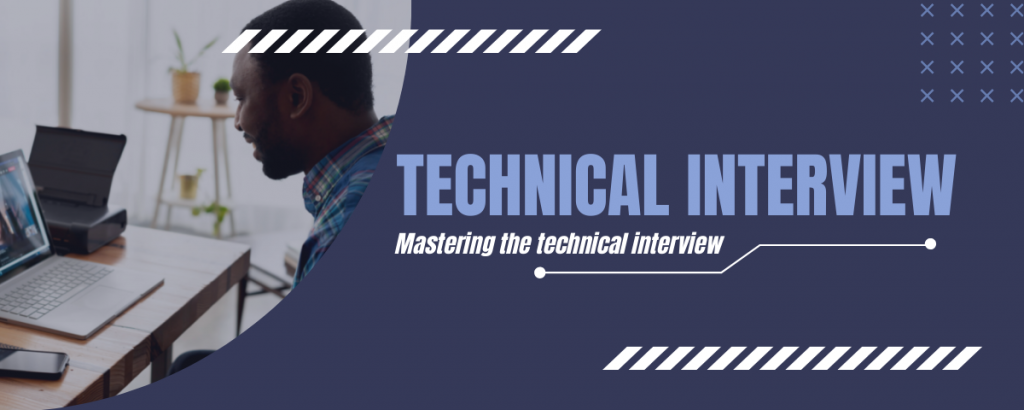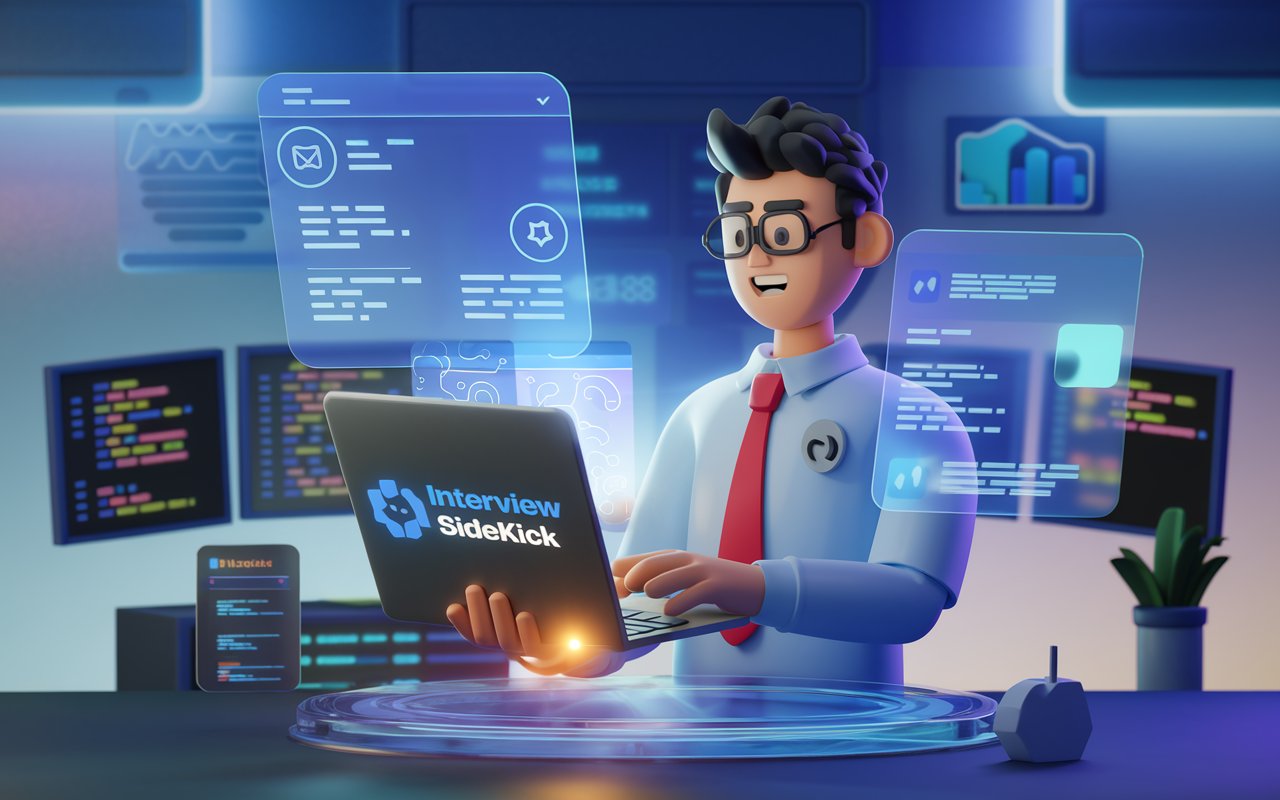The question of how to get ready for a tech interview can be puzzling and preparing for it is more so, however, the odds of cracking the interview can be increased with proper techniques and materials. Be it a software engineering job data science or any other tech job, this guide has to offer. Considering that a technical interview can be daunting for most people, certain ways and tools will ensure you are better placed to achieve your goals. This guide provides you with a step-by-step approach to excel in your technical interviews regardless of whether you want to become a software engineer or a data scientist or do any other tech job.

Introduction
Technical interviews play a key role in the hiring process for many technical jobs. They check your ability to solve problems, your coding skills, and how well you fit with a company’s culture. Good preparation can boost your performance and make you feel more confident. This matters because a solid prep plan not only helps you do well but also lets you face the interview with a calmer mind. Even though the stress can be high knowing what to expect can lead to better results.
Understand the Interview Process
Types of Interviews
Technical interviews come in many shapes and sizes, each designed to check different parts of what you know and can do. Knowing about these different types is key, as it helps you get ready in the right way. But you need to stay flexible since the way an interview is set up can change a lot. This can be tough but also gives you a chance to shine. While the core skills they look for might stay the same how they test you can be quite different. So, it’s crucial to know about all the possible ways they might interview you if you want to do well.
- Phone Screen: This first interview (done over the phone) checks your basic tech skills and whether you’re a good fit overall.
- Onsite/Virtual Whiteboard Interviews: These deep-dive sessions make you solve problems on a whiteboard or shared screen. This shows how well you code and tackle problems.
- Coding Tests: You’ll face timed tests (like those on LeetCode or HackerRank) to check your coding skills.
- Project-Based Tasks: These jobs ask you to build or change a project. This shows your hands-on skills, but they can be tough.
- Behavioral Interviews: These talks focus on getting to know your people skills how well you work in teams, and if you’d be a good fit for the company culture. They have a looser feel compared to other interview types.
Research the Company
Each company has its own interview style and priorities. If you tailor your prep to match what the company wants, you’ll have a big edge.
- Get to know the Company’s Products and Services: You need to learn what the company does, including its tech stack and latest projects.
- Find out the Interview Format: Some firms focus on system design, while others care more about algorithm challenges.
- Check out Employee Reviews: Sites like Glassdoor give you a peek into how past candidates felt about their interviews (this can tell you a lot).
Relevant:
Recruiter Interaction
If you build a good relationship with recruiters, you might boost your chances of getting interviews.
- Networking: Link up with people who work at the company you’re interested in those who went to your school.
- Referrals: Getting someone inside the company to recommend you can make your application pop.
- Professional Communication: Keep things professional when you talk to anyone showing how excited and qualified you are.
Get Your Resume and Profile Ready
Make Your Resume Shine
Your resume often gives employers their first look at you. It’s key to make sure it shows off your best points and what you’ve done well, as this can make or break your chances of getting an interview.
LinkedIn Profile
A good LinkedIn profile goes hand in hand with your resume and helps recruiters find you more.
- Matching Information: Ensure your LinkedIn profile aligns with your resume.
- High-Quality Photo: Include a sharp, business-appropriate picture.
- In-Depth Explanations: Give thorough accounts of your positions, duties, and accomplishments.
- Stay Active Online: Share compelling articles, join discussions, and showcase your expertise.
Excel in Crucial Technical Abilities
Data Structures and Algorithms
To clear technical interviews, you need to have a solid grasp of data structures and algorithms.
- Study Core Concepts: Pay attention to arrays linked lists, stacks, queues, trees, graphs, hash tables, and dynamic programming.
- Understand Big O Notation: Get a grip on the time and space complexities of different algorithms to make your solutions better.
- Solve Practice Problems: Keep working on problems on sites like LeetCode, HackerRank, and others.
Practice Coding
Regular coding practice helps you solve problems faster and more.
System Design
For senior jobs, system design interviews test your ability to create scalable and effective systems.
- Learn Design Patterns: Get to know common design patterns and how to use them.
- Study Scalable Systems: Figure out how to design systems that can handle big data and lots of traffic.
- Practice Design Questions: Try solving system design problems and talk about your approach with friends or mentors.
Relevant:
Problem-Solving Framework
Taking a step-by-step method to tackle problems can help you think more in interviews.
6-Step Method to Solve Problems
- Put the Problem in Your Own Words:
- Make sure you get the question by saying it.
- Check any guesses with the person asking.
- Get More Info:
- Ask for extra details to clear up any confusion.
- Find out what limits and needs there are.
- Picture It with Examples:
- Make up some inputs and outputs.
- Sketch or write out situations to help you understand better.
- Think Up Solutions:
- Look at different ways to tackle the problem.
- Think about what you gain or lose in speed and memory.
- Write the Code:
- Turn your chosen fix into code step by step.
- Create neat and effective code that follows industry standards.
- Check Everything:
- Put your code to the test with different scenarios, including unusual ones.
- Find and fix bugs, and make improvements where needed.
Behavioral and Soft Skills
Being good at tech stuff isn’t enough; companies also want people with strong people skills.
STAR Method
The STAR (Situation, Task, Action, Result) method helps you structure your answers to questions about your behavior.
Teamwork and Leadership
Showing that you can work well with others and lead when you need to can make you stand out from other candidates.
- Collaborative Projects
- Leadership Roles
- Conflict Resolution
Mock Interviews and Feedback
Practicing in a fake interview setting can boost your preparation.
Practice with Peers
Do practice interviews with friends co-workers, or mentors to create real interview-like situations.
- Structured Sessions
- Role-Playing
- Diverse Questions
Learn from Feedback
Good feedback helps you spot and fix your weak points.
- Keep Getting Better
- Ask for Honest Feedback
- Look at Mistakes
Relevant:
Time Management and Final Prep
Good time management and last-minute prep can help you do your best in the interview.
Organize Study Time
Making a study plan helps you cover all the important topics in a structured way.
- Set Daily Goals: Give specific time slots to different subjects, like algorithms, system design, and behavioral questions.
- Focus on Weak Spots: Spend more time on topics you’re not so sure about.
- Keep Tabs on Progress: Use things like calendars or to-do lists to check your study schedule and change it if you need to.
Rest and Mental Preparation
Getting enough rest and being ready plays a big role in staying focused and calm.
- Sleep Well: Get enough sleep the night before your interview.
- Stay Calm: Practice ways to relax like deep breathing or meditating to handle nerves.
- Positive Visualization: Picture yourself doing great in the interview to feel more confident.
Conclusion (How to Prepare for a Technical Interview)
Experiencing a technical interview is more than having an interview perspective – it requires familiarity with technology, scouting, and having a high EQ. When opposed to a praiseworthy objective, ‘Take a technical Interview’ is very complex and involves many practices. Interview preparation is not just gathering the relevant materials reviewing them and presenting them in the time. It basically also involves improvement in conduct, practicing conducting interviews, and even time allocation.
Begin your tech interview prep now. Use this full guide and tap into resources like Interview Sidekick, freeCodeCamp, LeetCode, etc.
This guide will help you face your tech interviews with ease and show off your talents. Keep in mind steady practice and a good attitude are crucial to your success.




